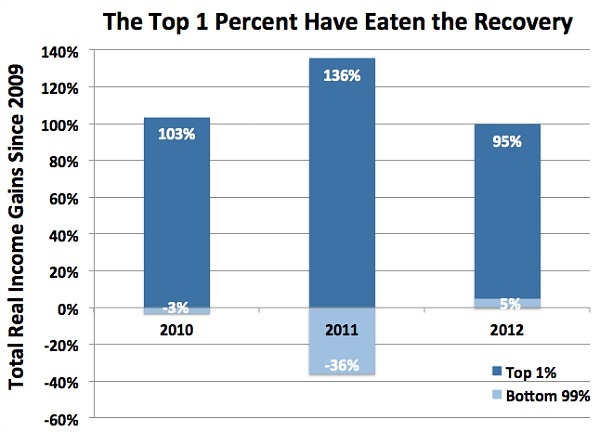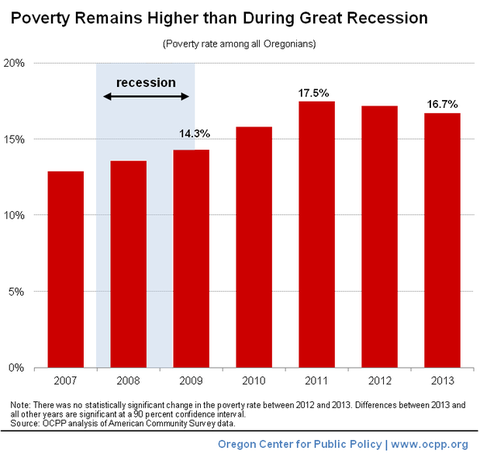Electing Republicans will certainly not improve things, but it is hard to blame people for feeling that the Democratic Party has abandoned them.
President Obama had hoped that recent signs of economic strength would benefit Democrats in the recently completed election. Job creation has picked up, the unemployment rate is falling, and growth is stronger. Yet, most Americans have not enjoyed any real gains during this so-called expansionary period.
The following two charts highlight this on the national level. The first shows how income gains made during the expansion period have been divided between the top one percent and everyone else. There is not a lot to say except that there is not a lot of sharing going on.

The second shows trends in real median household net worth. While declines in median net worth are not surprising in a recession, what is noteworthy is that median net worth has continued to decline during this expansion. Adjusted for inflation the average household is poorer now than in 1989.

Oregon provides a good example of state trends. The chart below shows that the poverty rate in Oregon is actually higher now than it was during the recession.

The poverty rate for children is even higher. In 2013, 21.6 percent of all Oregon children lived in families in poverty.
And, not surprisingly, communities of color experience poverty rates far higher than non-Hispanic whites.

More promising is movement building to directly advance community interests. One example: Voters in five states passed measures to boost minimum wages. Another was the successful effort in Richmond, California, to elect progressives to the city council over candidates heavily supported by Chevron, which hoped to dominate the council and overcome popular opposition to its environmental and health and safety policies.
This post originally appeared on Sociological Images, a Pacific Standard partner site, as “Voters Are Reasonably Disappointed in the Democratic Party.”





